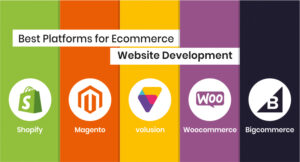Things to take care of before starting a ecommerce business?

Starting an e-commerce business requires strategic planning and preparation to ensure success. From ecommerce website design to marketing, here are key essentials to tackle before launching your online venture:
Market Research: Conduct thorough market research to identify your target audience, understand their needs and preferences, and assess the competition. This will help you position your products/services effectively and differentiate your business.
Business Plan: Create a comprehensive business plan outlining your business goals, marketing strategies, financial projections, and operational details. A well-thought-out plan will serve as a roadmap for your business and help secure funding if needed.
Legal Structure: Decide on the legal structure of your business, such as sole proprietorship, partnership, LLC, or corporation. Register your business with the appropriate authorities and obtain any necessary licenses or permits.
Domain Name and Hosting: Choose a domain name that reflects your brand and is easy for customers to remember. Secure reliable website hosting to ensure your e-commerce site remains accessible and fast-loading.

E-commerce Platform: Select a suitable e-commerce platform that aligns with your business needs. Popular options include Shopify, WooCommerce, Laravel and Magento. Consider factors like ease of use, customization options, and scalability.
Payment Gateway: Set up a secure and reliable payment gateway to process customer transactions. Ensure that it supports popular payment methods and offers robust security measures.
Product Selection: Carefully curate your product selection based on market demand and customer preferences. Start with a focused product range and expand as your business grows.
Product Sourcing: Determine how you will source your products, whether through manufacturing, wholesale suppliers, drop shipping, or a combination of methods. Establish strong relationships with suppliers and negotiate favorable terms.

Website Design and Development: Invest in professional website design that provides an intuitive user experience, mobile responsiveness, and secure checkout. Prioritize user-friendly navigation and visually appealing product displays.
Content Creation: Create compelling and SEO-friendly product descriptions, images, videos, and other content to engage customers and improve search engine rankings.
Logistics and Fulfillment: Develop a reliable shipping and fulfilment strategy to ensure timely and accurate delivery of orders. Consider working with fulfilment centres if needed.
Customer Service: Plan how you will provide excellent customer service and support. Respond to customer inquiries promptly and resolve issues to build trust and loyalty.
Marketing and Promotion: Develop a comprehensive marketing plan to attract customers to your e-commerce site. Consider a mix of digital marketing strategies, including social media marketing, email campaigns, content marketing, and paid advertising.
Security and Privacy: Prioritize website security to protect customer data and payment information. Obtain an SSL certificate to encrypt data and instil confidence in your customers.
Test and Launch: Thoroughly test your website and checkout process before the official launch. Check for any bugs or issues and fix them before going live.
By focusing on these key aspects before launching your business, you can build a strong foundation for success with a strategic ecommerce website design. Ongoing monitoring, analysis, and adaptation are essential to thrive in the competitive e-commerce landscape.
Know More About : Choosing the Right Tech Stack: Shopify, WordPress, Magento, and MERN (MongoDB, ExpressJS, ReactJS, NodeJS)
